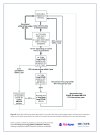This post has been copied and discussion moved from
Germany: ME/CFS Research Foundation
The rising cost of Long COVID and ME/CFS in Germany
Link to summary webpage
Link to full report
Germany: ME/CFS Research Foundation
The rising cost of Long COVID and ME/CFS in Germany
For the first time, a new report released by Risklayer and the ME/CFS Research Foundation models the prevalence and cost of Long COVID and ME/CFS in Germany. The report looked at the entire five-year period between 2020 and 2024 and found that both diseases created a substantial societal burden. This website summarises key findings and conclusions from the report. The full report, which includes a detailed description of the model developed to generate the novel data, can be accessed via the download link below.
Using an innovative approach, by combing existing data and findings from literature with novel data from a model specifically developed for this report, the authors show that, at the end of 2024, 871,086 people in Germany were likely living with Long COVID, while an additional 650,183 people were living with ME/CFS (the latter includes ME/CFS diagnosed as a result of COVID-19/Long COVID). See also Table 1 of the report. In total, more than 1.5 million people in Germany were living with either Long COVID or ME/CFS at the end of 2024.
Link to summary webpage
Link to full report
Last edited by a moderator:








